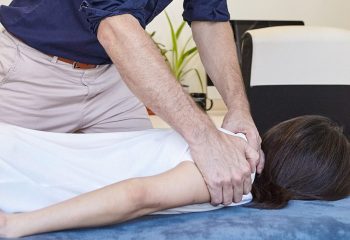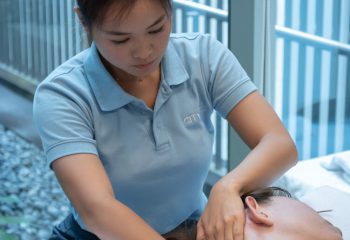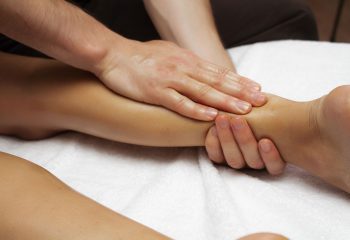Welcome to our comprehensive guide on gross motor skills for infants and toddlers! As parents and caregivers, we understand the importance of nurturing and supporting every aspect of our little ones’ development, and gross motor skills are no exception. These foundational skills encompass the control and coordination of large muscle groups, paving the way for essential physical activities like crawling, walking, and running. In this blog, we will explore the significance of gross motor skills in the early years, how they impact overall health, and provide insights into fostering healthy development through various activities, nutrition, and expert interventions. Whether you’re a parent, caregiver, or simply curious about child development, join us on this informative journey to empower the youngest members of our families for a bright and active future.
What are gross motor skills?
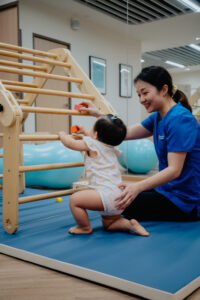
Before we dive deeper, let’s first understand what gross motor skills are. These are the abilities that involve the use of large muscle groups, primarily for activities like crawling, walking, running, jumping, and playing sports. Think of them as the fundamental movements that allow us to navigate the physical world around us.
Gross motor skills encompass several specific movements, such as:
- Locomotor skills: These are movements that help us get from one place to another, like walking, running, or skipping.
- Object control skills: These skills involve manipulating objects, such as catching a ball, throwing, or swinging a bat.
- Balance: Maintaining equilibrium while stationary or moving is crucial for various activities, from standing on one foot to riding a bicycle.
- Coordination: The ability to coordinate the movements of different parts of the body, such as using both hands and feet simultaneously, is an essential aspect of gross motor skills.
What are the key milestones in gross motor skills in infants, toddlers and adolescents?
Gross motor development is a remarkable journey that unfolds in distinct stages throughout a child’s life. While every child is unique and may progress at their own pace, understanding these key milestones can provide valuable insights into their growth and development. Let’s delve into the significant milestones in gross motor skills for infants, toddlers, and adolescents:
Newborns and Infants (Aged 0-2)

During the first two years of life, infants undergo incredible physical transformations. At birth, their movements are largely reflexive, but as they grow, they gradually gain control over their muscles. Milestones in this stage include:
- Lifting and turning their head while lying on their stomach (1-2 months)
- Rolling over from their back to their stomach (4-6 months)
- Sitting up with support (6-8 months)
- Crawling on hands and knees (7-10 months)
- Pulling themselves up to stand (9-12 months)
- Taking their first steps (around 12 months)
Tip: Learn more about your baby milestones with our Developmental Milestones Assessment and find out what are some of the newborn and infants conditions that our paediatric specialists can address here at City Osteopathy & Physiotherapy.
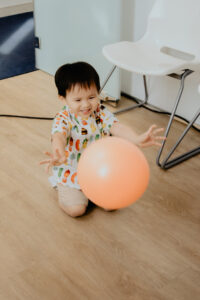
Toddlers (Aged 2-6)
Toddlers are a bundle of boundless energy, and their gross motor skills progress rapidly. They become more confident in their movements, perfecting skills like crawling, walking, running, and even climbing. As they explore the world around them, these newfound abilities become essential for their independence and interaction with their environment.
- Walking independently and beginning to run (around 15-18 months)
- Climbing stairs with assistance (18-24 months)
- Kicking a ball (around 2 years)
- Jumping with both feet leaving the ground (around 2 years)
- Pedalling a tricycle (around 2-3 years)
- Beginning to hop on one foot (around 2-3 years)
- Running with coordination and speed (4-5 years)
- Climbing and descending stairs with ease (4-5 years)
Tip: Find out more about what are some toddler conditions that our paediatric physiotherapists can help address!
Children & Adolescents (Aged 6-16)

As children enter adolescence, their gross motor skills continue to evolve. They refine their coordination, balance, and agility through activities such as sports, dance, and recreational play. This stage is crucial for building a strong foundation of physical skills that will serve them well into adulthood.
- Jumping rope and skipping (5-7 years).
- Riding a bicycle without training wheels (6-7 years).
- Developing more advanced sports skills like catching and throwing (6-8 years).
- Improving balance and agility for sports and activities (8-12 years).
Tip: Find out what are some of the children and adolescent’s conditions that our paediatric specialists can help to address!
Understanding these key milestones is not only fascinating but also aids parents, caregivers, and educators in providing the right support and encouragement at each stage of a child’s development. In the sections ahead, we’ll understand the causes and symptoms of delayed gross motor skills and also offer tips and insights on how to help your child thrive in their journey of gross motor skill development.
What are some causes of delayed gross motor skills in infants and toddlers?
Delayed gross motor skills development in infants and toddlers can have various underlying causes, and it’s essential to identify and address them appropriately. Here are some common factors that can contribute to delayed gross motor skills:
- Genetics: Some children may have a genetic predisposition to slower motor skill development. If there is a family history of delayed motor skills, it might increase the likelihood of a child experiencing similar delays.
- Premature birth: Babies born prematurely often have delayed motor development because they miss out on the full-term gestation period, which is crucial for the development of motor skills.
- Medical conditions: Certain medical conditions, such as cerebral palsy, muscular dystrophy, or genetic disorders, can affect a child’s motor skill development. These conditions may require specialised interventions and therapies.
- Neurological factors: Problems with the nervous system can lead to delays in gross motor skills. This can include conditions like developmental coordination disorder (DCD) or sensory processing disorders.
- Muscle weakness: Muscle weakness or low muscle tone (hypotonia) can impact a child’s ability to control and coordinate their movements.
- Environmental factors: Lack of opportunities for physical activity and exploration in a child’s environment can contribute to delayed gross motor skills. Insufficient physical activity or sedentary lifestyles can hinder motor skill development.
- Social and emotional factors: Emotional and social factors, such as anxiety or low self-esteem, can affect a child’s willingness to engage in physical activities and may impact their motor skill development.
- Visual or auditory impairments: Sensory impairments, such as vision or hearing problems, can affect a child’s perception and awareness of their surroundings, which can, in turn, impact their motor skills.
- Nutrition: Poor nutrition during early childhood can lead to delays in physical development, including gross motor skills. Adequate intake of essential nutrients is crucial for overall growth and development.
- Lack of stimulation: Children need opportunities for play and exploration to develop their motor skills. A lack of stimulating activities and experiences can result in delayed development.
What are some symptoms of gross motor developmental delays in infants and toddlers?
Gross motor developmental delays in infants and toddlers can manifest through various symptoms or signs that indicate a delay in the acquisition of age-appropriate physical skills. These delays can affect a child’s ability to perform activities that involve larger muscle groups and coordination. Here are some common symptoms of gross motor developmental delays:
- Late milestones: Children with gross motor delays may achieve developmental milestones such as rolling over, sitting up, crawling, standing, or walking later than expected for their age.
- Poor balance: They may have difficulty maintaining balance while sitting, standing, or walking. Frequent falls or stumbling can be indicative of balance issues.
- Clumsiness: Children with motor delays may appear clumsy or uncoordinated when attempting physical activities like running, jumping, or catching a ball.
- Difficulty with basic movements: They may struggle with basic movements like crawling on hands and knees, climbing stairs, or peddling a tricycle.
- Limited range of motion: Limited flexibility or range of motion in the limbs or joints can be a sign of gross motor delays. For example, difficulty bending the knees fully or extending the arms.
- Muscle weakness: Weakness in the muscles, particularly the core muscles, can affect a child’s ability to support their body weight and perform physical tasks.
- Tendency to “W-sit”: Some children with motor delays may prefer to sit in a “W” position, where their legs are bent and splayed out to the sides. This posture can be a sign of muscle tightness or weakness.
- Difficulty with hand-eye coordination: Gross motor skills also involve hand-eye coordination. Children with delays may struggle with activities that require aiming, throwing, or catching objects.
- Lack of interest in physical play: They may show little interest in physical play, sports, or outdoor activities and may prefer sedentary activities.
- Frequent fatigue: Children with motor delays may tire easily during physical activities, even when the activity is age-appropriate and not overly strenuous.
- Difficulty with gross motor play: They may have trouble participating in playground activities, such as climbing on jungle gyms or swinging on swings.
- Difficulty keeping pace with peers: A noticeable lag in physical abilities compared to same-age peers can be a sign of gross motor delays.
It’s important to note that delayed gross motor skills can vary widely in their causes and severity. If parents or caregivers suspect that a child is experiencing significant delays in motor skills, it is advisable to consult a paediatrician or a developmental specialist such as a paediatric physiotherapist. Early intervention and appropriate therapies can often help children catch up and develop the necessary motor skills for their age. Find out more about how we address your baby’s developmental delays with paediatric physiotherapy.
Why are gross motor skills vital for toddler development?
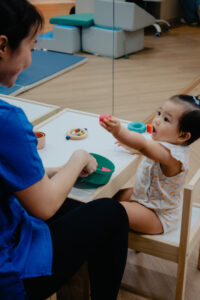
For toddlers, gross motor skills development is a crucial part of their growth journey. As children transition from infancy to toddlerhood, they begin to explore their surroundings actively. This exploration is vital for several reasons:
- Independence: Developing gross motor skills allows toddlers to become more independent in their daily activities, like dressing themselves or feeding.
- Learning: Movement helps toddlers learn about the world around them by allowing them to touch, feel, and interact with objects.
- Communication: Physical activities like dancing or mimicking animal movements can serve as a form of early communication and self-expression.
- Preparation for school: Gross motor skills are a prerequisite for many school activities, from participating in sports to sitting attentively in class.
- Healthy habits: Encouraging physical activity from a young age sets the stage for a lifelong commitment to a healthy lifestyle.
Find out more about what are some toddler conditions that our paediatric physiotherapists can help address!
What are some activities that your infant or toddler can do to develop gross motor skills?
Now that we’ve explored the significance of gross motor skills, it’s essential to understand how to promote their development. Gross motor skills can be nurtured and enhanced through a variety of activities and strategies below:
- Outdoor play: Encourage children to spend time outdoors, where they can run, jump, climb, and explore freely.
- Sports and games: Participation in sports like football, basketball, or swimming can improve gross motor skills and promote teamwork.
- Dancing: Dancing is an excellent way to enhance balance and coordination while having fun.
- Obstacle courses: Create obstacle courses in your backyard or local park, challenging children to crawl, jump, and balance.
- Active playgrounds: Visit playgrounds with equipment that encourages climbing, swinging, and sliding.
How can our paediatric physiotherapists assess and monitor gross motor skills?
Here at City Osteopathy and Physiotherapy with our paediatric physiotherapists, we employ various assessment tools and strategies to evaluate and monitor gross motor skills in children. These assessments help us understand a child’s strengths and areas that may require intervention or support.
Here’s what to expect at a Developmental Milestones Assessment session with us:
- Assessment for Age-Appropriate Development: This assessment includes the Peabody Developmental Motor Scales (PDMS), which evaluates the quality and fine-ness of your baby’s movements.
- Developmental Guide Brochure: To ensure you have a clear understanding of what to expect in the next phase of your baby’s development, we provide you with a comprehensive developmental guide brochure. This brochure outlines the milestones and growth patterns you can anticipate before your baby reaches their next developmental milestone.
- Play and Engagement Strategies: Our physiotherapists provide you with personalised guidance on how to play and engage with your baby effectively. These strategies are tailored to your baby’s specific developmental needs and enhancement.
- Age-Appropriate Toys for Development: Our physiotherapists will provide you with detailed recommendations on age-appropriate toys that are specifically designed to support various aspects of your baby’s development.
Book a Developmental Milestones Assessment with our paediatric physiotherapist and get your little one the care they need, naturally.
How can our paediatric physiotherapists help your child in the event that he or she has developmental delays?
Paediatric physiotherapy employs a variety of techniques to help babies with developmental delays overcome motor challenges and achieve their developmental milestones. These techniques are tailored to the specific needs of each child and are designed to promote motor skills, cognitive abilities, and social interactions. These techniques include:
- Motor skills therapy: Motor skills therapy is dedicated to enhancing a baby’s physical abilities, encompassing balance, coordination, strength, and mobility. It employs gentle stretches, range-of-motion exercises, balance training, and strength-building routines.
- Developmental exercises and techniques: These target distinct areas of development, including cognitive, fine motor, gross motor, and social skills. Physical therapists engage the child in play-based activities, interactive games, and sensory stimulation to stimulate growth.
- Sensory integration techniques: Sensory integration techniques aid infants in processing and responding appropriately to sensory input. These methods expose them to various textures, sounds, and movements, fostering suitable sensory responses.
- Movement facilitation techniques: The focus of movement facilitation techniques is to encourage normal movement patterns and postural control. These methods employ specific handling and positioning maneuvers to promote optimal motor development and overall functional improvement.
Learn more about how our paediatric physiotherapists can help in addressing your baby’s developmental delays.
Developing strong gross motor skills with paediatric physiotherapy
Understanding and nurturing gross motor skills are essential for a child’s physical, emotional, and cognitive development. As an osteopathy and physiotherapy clinic specialising in babies and children, we are here to support you on this journey. If you have any questions or concerns about your child’s gross motor skills, don’t hesitate to book a consultation with our paediatric physiotherapist for a Development Milestones Assessment! Together, we can help your child reach their full potential!
FAQs
What can parents do to support gross motor skills at home?
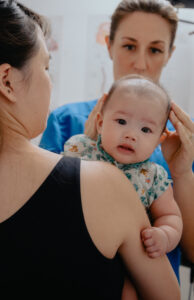
Parents play a vital role in promoting gross motor skill development. Here are some practical tips:
- Provide opportunities: Create an environment where your child can explore and play freely, both indoors and outdoors.
- Set a positive example: Be physically active yourself, as children often mimic their parents’ behaviour.
- Limit screen time: Reduce excessive screen time and encourage active play instead.
- Offer variety: Introduce a variety of activities and sports to help your child discover their interests.
- Be patient: Recognise that children develop at their own pace and avoid pushing them beyond their capabilities.
How does nutrition affect gross motor skill development?
Nutrition plays a significant role in gross motor skill development. Proper nutrition ensures that children have the energy and nutrients necessary for physical growth and development. Here are some key points to consider:
- Balanced Diet: Ensure that your child receives a balanced diet with adequate protein, carbohydrates, fats, vitamins, and minerals.
- Hydration: Staying well-hydrated is crucial for muscle function and overall performance.
- Healthy Snacking: Provide nutritious snacks like fruits, vegetables, and whole grains to fuel your child’s active lifestyle.
- Consultation: If you have concerns about your child’s diet, always consult with a healthcare professional or nutritionist for guidance.
What are the benefits of having strong gross motor skills for teens and adults?
Gross motor skills are not limited to childhood development; they remain essential throughout life. For teens and adults, strong gross motor skills offer numerous benefits, including:
- Physical fitness: Maintaining these skills supports overall fitness and health.
- Reduced injury risk: Good balance and coordination can help prevent injuries, especially in sports and recreational activities.
- Enhanced performance: Athletes rely on gross motor skills to excel in their chosen sports.
- Independence: Being physically capable allows adults to handle daily tasks and activities with ease.
- Stress reduction: Physical activity is an excellent stress reliever for adults, improving mental well-being.


